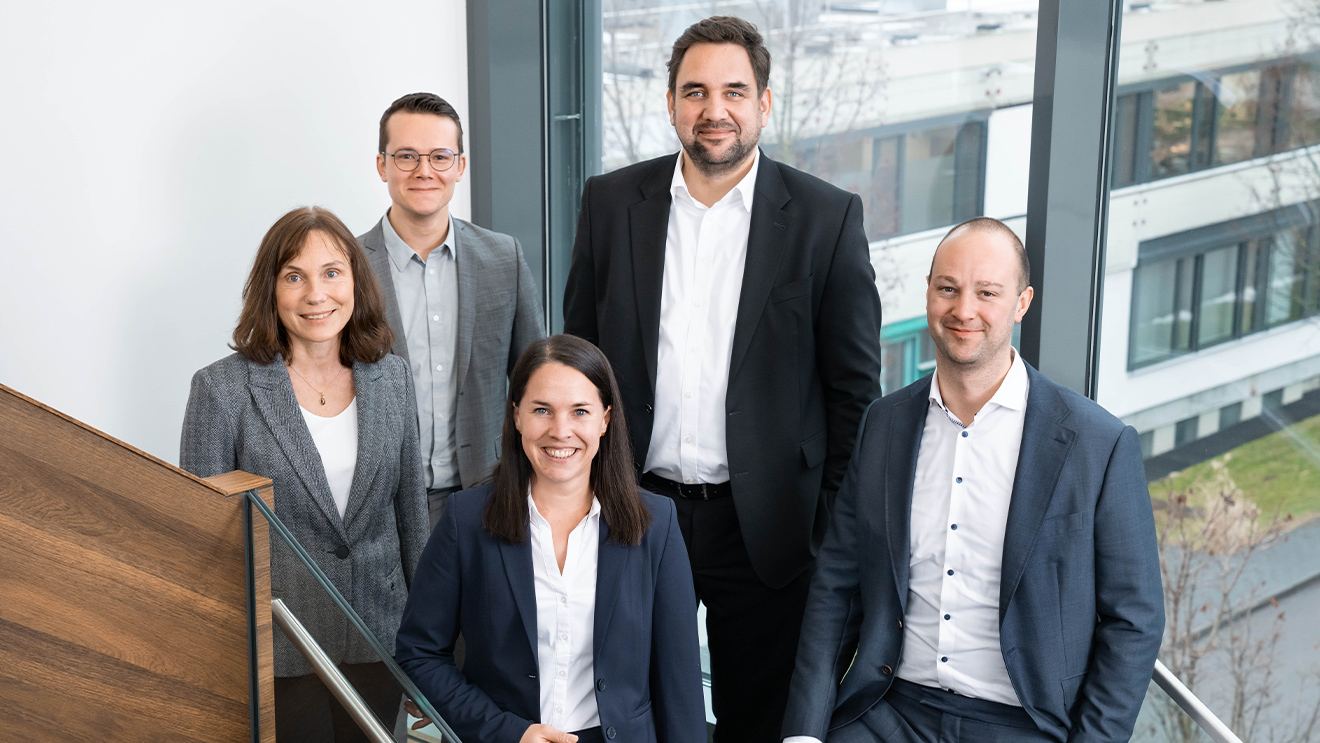ElringKlinger expands revenue in fiscal 2018 amid challenging business conditions
- Revenue up by 2.1% to EUR 1,699 million in 2018, organically by 7.4%
- EBIT before purchase price allocation (PPA) totals EUR 100 million: downside pressure from external and internal factors - EBIT margin before PPA at 5.9%
- Suspension of dividend agreed for 2018 financial year
- Focus on core business: sale of Swiss Hug Group and new enerday GmbH successfully concluded
- Guidance for 2019 confirmed
Dettingen/Erms (Germany), March 27, 2019 +++ Over the course of 2018, the ElringKlinger Group had to contend with a challenging business environment dominated by political and macroeconomic uncertainties, spiraling commodity prices, and internal capacity constraints. At the same time, the company continued to cement its strategic position in the area of alternative drive concepts in order to establish the best possible foundations for next-generation mobility. With a continued focus on its core business, ElringKlinger sold the Swiss Hug Group in 2018, thus divesting itself of an entity that specializes in exhaust gas purification. ElringKlinger also disposed of its interest in new enerday GmbH, a company based in Neubrandenburg, Germany, and will in future concentrate solely on low-temperature PEM fuel cells within the area of fuel cell technology; PEM fuel cells are of relevance to mobile applications. Another milestone in 2018 was the first series production contract for a complete battery system, for which the company is currently installing production lines.
CEO Dr. Stefan Wolf: "We at ElringKlinger were quick off the mark when it came to making preparations for an evolving automotive industry and we expect to generate strong growth in the coming years, particularly in the area of battery and fuel cell technology but also in the field of lightweight structural engineering. By 2030, the proportion of revenue generated from sales within these fields of strategic importance to the future is to rise from around 7% at present to over 25%."
Revenue target exceeded - EBIT impacted by external and internal factors
Based on definitive, audited figures, ElringKlinger managed to maintain its trajectory of growth in 2018, despite difficult market conditions. Group revenue increased by 2.1%, taking the figure to EUR 1,699.0 million (prev. year: EUR 1,664.0 million). Due to foreign exchange effects, particularly from the translation of the Turkish lira, Brazilian real, and US dollar into euro, revenues were diluted by 2.6%. M&A activities (sale of Hug and new enerday) also exerted downward pressure on revenue, equivalent to 2.7%. In organic terms, i.e., adjusted for these effects, the company managed to expand revenues by 7.4%, thus exceeding its target of outpacing growth in global vehicle production (-0.4%) by 2 to 4 percentage points on the basis of organic revenue growth.
Earnings before interest and taxes (EBIT) was impacted by high commodity prices. The substantial increase in material-related prices, primarily for steel, aluminum, and plastic, translated into additional expenses of around EUR 25 million in 2018. At the same time, demand within the NAFTA region remained high: in the fourth quarter of 2018 alone, currency-adjusted revenue increased by 28%, whereas the market as a whole expanded by just 1%. As a result, plants were operating at the top end of their capabilities in terms of capacity, leading to a disproportionately large increase in costs as well as exceptional cost items, e.g., for additional shifts, overnight freight forwarding, and external inspections. In order to optimize operations at the NAFTA-based plants, the Group successfully introduced improvement measures. These efforts, however, did not produce the effects on earnings to the extent anticipated for 2018. In total, EBIT before PPA fell short of the previous year's figure at EUR 100.2 million (prev. year: EUR 141.8 million). This corresponds to an EBIT margin, before PPA, of 5.9% (prev. year: 8.5%). The Group had originally projected a margin of around 7%. Of this total, the fourth quarter of 2018 accounted for revenue growth of 3.0% (organically +7.6%), taking the figure to EUR 431.8 million (prev. year: EUR 419.3 million), and EBIT before PPA of EUR 11.8 million (prev. year: EUR 30.7 million). The EBIT margin before PPA was 2.7% (prev. year: 7.3%).
Although net finance costs were down at EUR -14.7 million in fiscal 2018 (prev. year: EUR -27.3 million), earnings before taxes fell to EUR 81.4 million (prev. year: EUR 110.1 million). As income tax expenses failed to decrease at the same rate, net income (i.e., profit after taxes) stood at EUR 47.9 million (prev. year: EUR 73.8 million). Net income attributable to shareholders amounted to EUR 43.8 million (prev. year: EUR 69.9 million). Calculated on this basis, earnings per share stood at EUR 0.69, which was down on the prior-year figure of EUR 1.10.
Suspension of dividend
In view of the Group's earnings performance in fiscal 2018, the Management Board and the Supervisory Board have jointly decided to depart from the Group's established dividend policy and suspend the dividend for the 2018 financial year. This is aimed at further strengthening internal financing in support of the company's transformation process.
Investment ratio within target range at 9.6%
ElringKlinger maintained its disciplined approach to capital expenditure. The investment ratio (in property, plant, and equipment and in investment property) was 9.6% in 2018 (prev. year: 9.3%), i.e., within the target range of between 9 and 10% of Group revenue. Investments were directed primarily at the fields of business considered to be of particular importance to the future in strategic terms. A prime example is the Technology Center for electromobility currently being established at the Group's headquarters in Dettingen/Erms, the focus being on battery and fuel cell applications. The facility is expected to be operational in the first quarter of 2020.
Positive operating free cash flow in fourth quarter
Despite growth, capital absorption in net working capital (primarily inventories and trade receivables/payables) remained largely unchanged year on year in relation to revenue at 33.4% for 2018 as a whole (prev. year: 33.3%). In conjunction with lower earnings, this resulted in negative operating free cash flow of EUR -86.2 million (prev. year: EUR -66.6 million), despite a disciplined investment approach. In the fourth quarter the comparatively lower level of capital absorption within net working capital led to positive operating free cash flow of EUR 2.6 million (prev. year: EUR -13.3 million).
Improved maturity structure through syndicated loan
Net debt was expanded in the context of investing activities and was up at EUR 723.5 million at the end of the 2018 financial year (prev. year: EUR 655.3 million). However, with a solid equity ratio of 42.8% (prev. year: 44.0%), sufficient cash, and ample financial scope in the form of undrawn credit lines, the Group's financial situation remains solid. Furthermore, the syndicated loan agreement concluded in February 2019 for a sum of EUR 350 million over a term of at least 5 years has led to an improvement in the Group's maturity profile and provides a more solid foundation for corporate planning.
Guidance for 2019 confirmed
Looking ahead to 2019, Dr. Wolf said, "Given the fundamentals, the financial year ahead is also likely to produce a number of challenges. Precise forecasting has become more difficult due to the range of influencing factors."
The outlook for 2019, published on February 19, has been confirmed. According to the company's projections, global vehicle production will grow by between 0 and 1% in 2019 - with signs of seasonal divergence. Following a downturn in the first six months of the year, economists expect the second half to produce a positive performance. Group revenue is to exceed market growth by 2 to 4 percentage points in organic terms. Due to difficult market conditions, however, it is considered unlikely that downside factors (e.g., more pronounced trade conflicts or a market downturn in China) will be fully offset by the improvements in EBIT targeted by the Group. Additionally, the Group will no longer have the benefit of proceeds from the sale of Hug. In total, ElringKlinger's EBIT margin before PPA is expected to be around 4 to 5% in 2019. The investment ratio is to be pushed down to below 9% and net working capital is to be improved in relation to revenue. Based on these measures, operating free cash flow should be positive in 2019, while net debt in relation to EBITDA is to be scaled back. The Group has confirmed its medium-term targets.
Key financials for FY 2018 and Q4 2018
| EUR million | FY 2018 | FY 2017 | ∆ abs. | ∆ rel. | Q4 2018 | Q4
2017 | ∆ abs. | ∆ rel. |
| Order intake | 1,735.3 | 1,732.0 | +3.3 | +0.2% | 390.7 | 443.4 | -52.7 | -11.9% |
| Order backlog | 1,020.1 | 1,000.6 | +19.5 | +1.9% | 1,020.1 | 1,000.6 | +19.5 | +1.9% |
| Revenue | 1,699.0 | 1,664.0 | +35.0 | +2.1% | 431.8 | 419.3 | +12.5 | +3.0% |
| of which FX effects | | | -44.0 | -2.6% | | | -1.7 | -0.4% |
| of which M&A | | | -44.8 | -2.7% | | | -17.6 | -4.2% |
| of which organic | | | +123.8 | +7.4% | | | +31.8 | +7.6% |
| EBITDA | 196.6 | 238.4 | -41.8 | -17.5% | 37.8 | 55.9 | -18.1 | -32.4% |
| EBIT before PPA | 100.2 | 141.8 | -41.6 | -29.3% | 11.8 | 30.7 | -18.9 | -61.6% |
EBIT margin
before PPA (in %) | 5.9 | 8.5 | -2.6PP | | 2.7 | 7.3 | -4.6PP | |
| PPA | 4.0 | 4.5 | -0.5 | -11.1% | 1.2 | 1.0 | +0.2 | +20.0% |
| EBIT | 96.2 | 137.3 | -41.1 | -29.9% | 10.6 | 29.7 | -19.1 | -64.3% |
| Net finance cost | -14.7 | -27.3 | +12.6 | +46.2% | -3.3 | -8.0 | +4.7 | +58.8% |
| EBT | 81.4 | 110.1 | -28.7 | -26.1% | 7.2 | 21.6 | -14.4 | -66.7% |
| Income taxes | 33.5 | 36.3 | -2.8 | -7.7% | 7.4 | 10.4 | -3.0 | -28.8% |
| Effective tax rate (in %) | 41.2 | 33.0 | +8.2PP | | >100 | 48.0 | | |
Net income
(after non-controlling interests) | 43.8 | 69.9 | -26.1 | -37.3% | -1.2 | 10.3 | -11.5 | <-100% |
Earnings per share
(in EUR) | 0.69 | 1.10 | -0.41 | -37.3% | -0.02 | 0.16 | -0.18 | <-100% |
Investments
(in property, plant,
and equipment and investment property) | 163.5 | 155.5 | +8.0 | +5.1% | 41.9 | 41.5 | +0.4 | +1.0% |
| Operating free cash flow | -86.2 | -66.6 | -19.6 | -29.4% | 2.6 | -13.3 | +15.9 | >+100% |
Dividend per share
(in EUR) | 0.00 | 0.50 | -0.50 | -100.0% |
| ROCE (in %) | 5.5 | 8.2 | -2.7PP | |
| Net working capital | 568.0 | 553.3 | +14.7 | +2.7% | | | | |
| Equity ratio (in %) | 42.8 | 44.0 | -1.2PP | | | | | |
| Net financial liabilities | 723.5 | 655.3 | +68.2 | +10.4% | | | | |
Employees
(as of Dec. 31) | 10,429 | 9,611 | +818 | +8.5% | | | | |
The annual report for 2018 is available online at: https://www.elringklinger.de/investor/2018-gb-en.pdf
For further information, please contact:
ElringKlinger AG
Dr. Jens Winter
Strategic Communications
Max-Eyth-Straße 2
72581 Dettingen/Erms (Germany)
Phone: +49 7123 724-88335
Fax: +49 7123 724-85 8335
E-mail: jens.winter[at]elringklinger.com
About ElringKlinger AG
As an independent and globally positioned supplier, ElringKlinger is a powerful and reliable partner to the automotive industry. Be it passenger car or commercial vehicle, equipped with an optimized combustion engine, with hybrid technology, or with an all-electric motor - we offer innovative solutions for all types of drive system. In doing so, we are making a committed contribution to sustainable mobility. Our lightweighting concepts help to reduce the overall weight of vehicles. As a result, vehicles powered by combustion engines consume less fuel and emit less CO2, while those equipped with alternative propulsion systems benefit from an extended range. Developing cutting-edge battery and fuel cell technology as well as electric drive units, we were among the frontrunners when it came to positioning ourselves as a specialist in the field of e-mobility. At the same time, we are committed to evolving our sealing technology for a wide range of applications. Our shielding systems are designed to ensure high-end temperature and acoustics management throughout the vehicle. Dynamic precision parts developed by ElringKlinger can be used in all types of drive system. Additionally, the Group's portfolio includes engineering services, tooling technology, and products made of high-performance plastics, which are also marketed to industries beyond the automotive sector. These efforts are supported by a dedicated workforce of more than 10,000 people at 45 ElringKlinger Group locations around the globe.
Disclaimer
This release contains forward-looking statements. These statements are based on expectations, market evaluations and forecasts by the Management Board and on information currently available to them. In particular, the forward-looking statements shall not be interpreted as a guarantee that the future events and results to which they refer will actually materialize. Whilst the Management Board is confident that the statements as well as the opinions and expectations on which they are based are realistic, the aforementioned statements rely on assumptions that may conceivably prove to be incorrect. Future results and circumstances depend on a multitude of factors, risks and imponderables that can alter the expectations and judgments that have been expressed. These factors include, for example, changes to the general economic and business situation, variations of exchange rates and interest rates, poor acceptance of new products and services, and changes to business strategy.
27.03.2019 Dissemination of a Corporate News, transmitted by DGAP - a service of EQS Group AG.
The issuer is solely responsible for the content of this announcement.
The DGAP Distribution Services include Regulatory Announcements, Financial/Corporate News and Press Releases.
Archive at www.dgap.de











